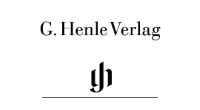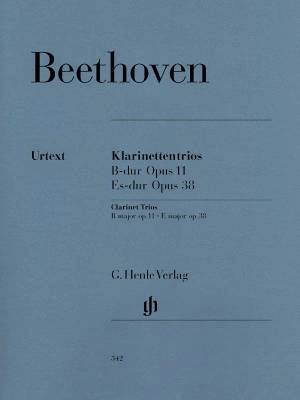Opens in a new window
G. Henle Verlag Clarinet Trios B flat major op. 11 and E flat major op. 38 - Beethoven /Klugmann /Raphael - Clarinet(or Violin) /Cello/Piano - Parts Set
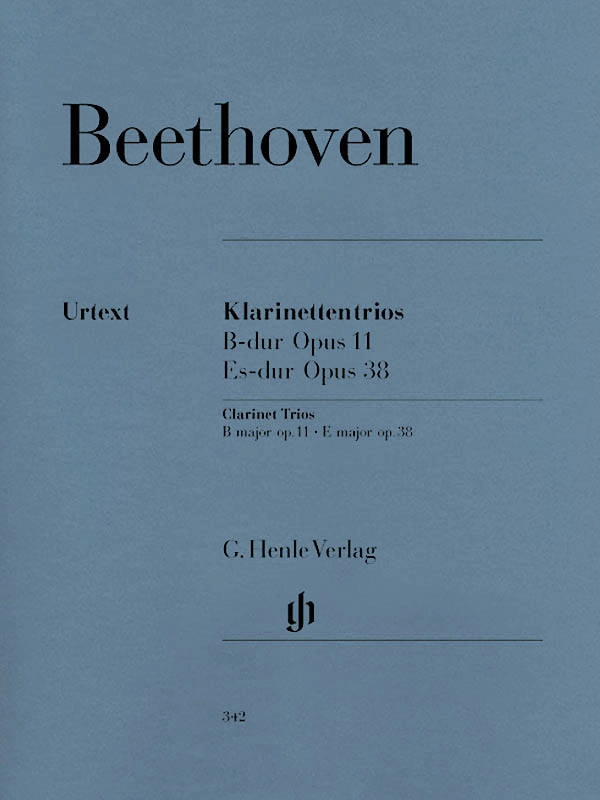
Additional Photos:
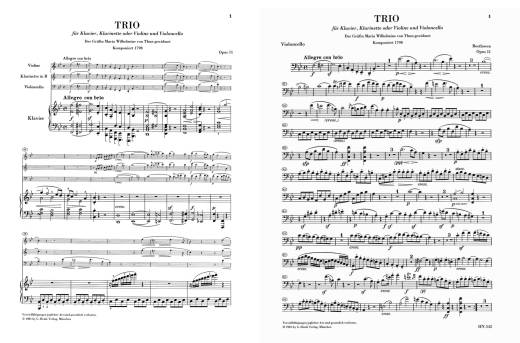
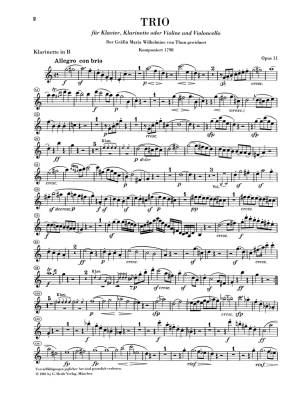
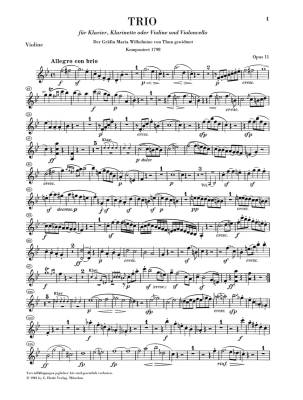
- Author/Composer:
- BEETHOVEN, LUDWIG VAN
- Instrumentation:
- PIANO TRIO
- Model #:
- 51480342
Editors: Friedhelm Klugmann, Gunter Raphael
Fingering: Walther Lampe, Hans-Martin Theopold
Format: Parts Set
Instrumentation: Clarinet (or Violin), Cello, and Piano
Beethoven composed his Clarinet Trios op. 11 and 38 in 1798 and 1802/03. The op. 11 was given the nickname "Gassenhauer Trio" because its third movement is a set of variations on a theme from Joseph Weigl's opera L'amor marinaro ("Gassenhauer" means a "popular song"). Playing with many possibilities in these nine variations, Beethoven sometimes lets the piano appear alone, and sometimes has it rest. In places the mood is that of a sort of funeral march, and there are harmonic and rhythmic surprises throughout.
The op. 38 "Grand Trio", the later of the two, was a reworking by Beethoven himself of his op. 20 Septet. He provided - as also in the case of op. 11 - an alternative violin part, in order to give the work broader distribution and thus greater popularity. The violin parts are likewise included with this Urtext edition, which - just as back then - makes it doubly valuable.
Contents:
- Clarinet Trio for Piano, Clarinet (or Violin) and Violoncello B flat major op. 11
- Clarinet Trio for Piano, Clarinet (or Violin) and Violoncello E flat major op. 38
Q & A
There are currently no questions for this product.
Reviews
There are currently no reviews for this product. Be the first to write one!

